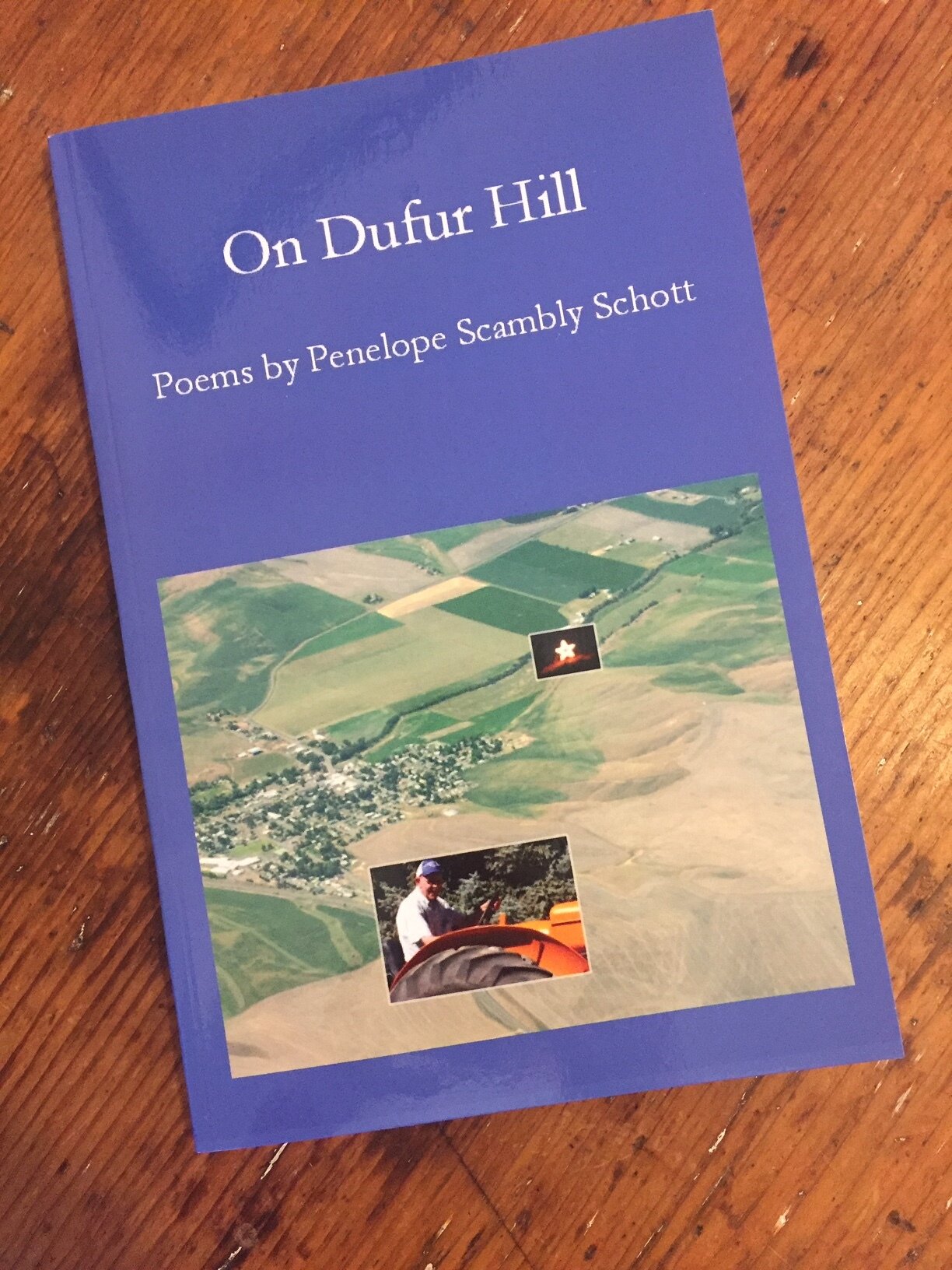Are you in the inbetween?
I’m swinging between wanting to settle and sink into a book, and being unable to settle and sink into anything. Busy, tired, frittered, frettered. Is frettered a word? It is now. New rules for this season of upheaval and unrest!
Need a book suggestion? Who doesn’t — it’s like asking if I need a glass of wine. The answer is always yes. In that spirit, I offer a few good reads:
ON DUFUR HILL
by Penelope Scambly Schott
This award-winning poet is prolific, and this book — her 22nd? — captures the charm of a small north-central Oregon town she’s made the home of her heart. These poems-of-place are both specific and wonderfully universal. Do you have a Mayberry you hold dear? Count yourself lucky, and drive on in. I love the sense of place rendered in these pages, but even more I appreciate the way this small town allows larger reflections to grow, as seen in this poem:
Woman Remembering Her Mother
When you were small, your mother
gazed at you with inexplicable grief.
She wanted to say, For my whole life
I have hoped to be known. But you
were a child so you couldn’t see her.
Such a long darkness between you —
I can’t explain why I weep now.
— Penelope Scambly Schott
FIST STICK KNIFE GUN: A Personal History of Violence
by Geoffrey Canada
An essential read. This first-person account of survival reveals our simplistic attitudes and actions toward crime.
“In poor communities the police simply tend to be more hostile, more aggressive, and racist than in middle-class communities. Many middle-class people in America have a hard time understanding why poor communities don’t necesarily see police as helpful in deterring crime, because in middle-class communities police tend to act differently. The friendly officer who has a citizen’s best interest at heart in one community is the hostile officer who shows nothing but disrespect in the other. When you have a mostly white police force in a community of color, the problem gets ten times worse . . .
The reality is this: we pay more to incarcerate kids across this nation than we do to educate them. Can we afford to lock up even more? America is not number one or even in the top fifteen when it comes to reading, math, and Enlgish. We’re number one in locking up children. Are our streets safer as a result? The answer is no. While we have foolishly invested our precious resources in a criminal justice approach to soliving our crime problem, we have nothing to show for it except poorer schools, poorer services for youth, and more people on the streets unemployable because they have a criminal record. Instead of educating and investing in young people to help them grow up and eventually give back to theis great country we have a crisis of voiolent youth on our streets that we pretend can be solved by a strategy that has already failed.”
ON EARTH WE’RE BRIEFLY GORGEOUS
by Ocean Vuong
For months I resisted this book. Everyone loved it but because I cheer for the underdog, I eschewed the hype. But I was wrong, wrong, wrong!
The writing is, well, gorgeous. Vivid and sensory, rich and haunted. The novel is both long poem and full sigh. Beautiful and unusual. Line after beautiful line, passage after page. The mood is dense and rich, the pace slow, lonely and lovely.
“In Vietnamese, the word for missing someone and remembering them is the same: nhớ. Sometimes, when you ask me over the phone, Con nhớ mẹ không? I flinch, thinking you meant, Do you remember me? I miss you more than I remember you.”
THE DEBATE OVER SYSTEMIC RACISM:
Why It Divides and Why It Provides Hope
by Gerald F. Seib, The Wall Street Journal
Trying to make sense of systemic racism?
Take a look at home ownership.
“After World War II, the federal government pumped millions of dollars into programs to build houses to develop the soon-sprawling suburbs — but under policies that denied those benefits to Black Americans. Houses were sold at a very, very cheap rate that allowed for generational wealth to be developed in the white population, and did not in the Black population.”
Read the crystalizing history in this brief piece.
YOUR TURN: How are you doing? And what are you reading?




